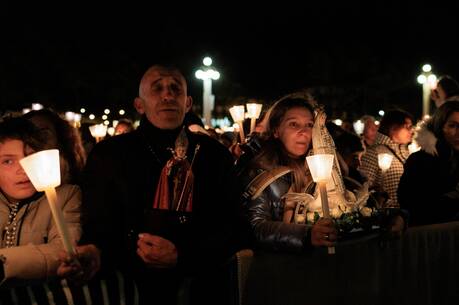A Reflection for Friday after Ash Wednesday
Find today’s readings here.
“The days will come when the bridegroom is taken away from them,
and then they will fast.” (Mt 9:14-15)
“When it’s over, I want to say: all my life
I was a bride married to amazement.
I was the bridegroom, taking the world into my arms.” (Mary Oliver, “When Death Comes”)
—
I was first introduced to the world of Mary Oliver’s poetry by my spiritual director, whom I met in college. She gave me a copy of one of Oliver’s most famous works, “Wild Geese,” when I was a first-year student feeling challenged by life’s big questions: Who is God calling me to be? Am I brave enough to answer that call?
In “Wild Geese,” Oliver artfully reminds the reader that “you do not have to be good/You do not have to walk on your knees/For a hundred miles through the desert, repenting.” Instead, we have to listen to our desires, or, as Oliver says much more beautifully (though now this line is often subjected to meme culture and the joking commentary of America’s literary editor James T. Keane), we just have to “let the soft animal of your body love what it loves.”
Oliver’s words, in the context of my spiritual direction, reminded me that in the process of discerning what we desire, we discover God’s will. Our deepest wants are God’s deepest wants for us.
With black crosses and statements like “Remember that you are dust and to dust you shall return,” Lent does not bring the warm and fuzzy feeling that its secular calendar counterpart, Valentine’s Day, hearkens with its red heart-shaped boxes full of little chocolates. Instead, Lent is a time of self-examination and repentance, a time to investigate our desires and surrender our weaknesses to God. We are reminded of our mortality, the shared element of all humanity.
Oliver gets at that palpable remembrance that we belong to Earth in her poem, “When Death Comes.” Oliver echoes the language of the bridegroom that we see in today’s Gospel. In her poem, Oliver reflects on the reality of death and determines when her final day arrives, she wants to look at her time on Earth and know that she was committed to a well-lived life, “married” to the richness and excitement of our humanness.
In the Gospel, Jesus analogizes himself to the beloved bridegroom, saying that when the bridegroom, the Messiah, is present, there is no need to hunger and fast for God. Instead, the Lord that they have longed for is present among them and has come to make all things new. The people should celebrate his arrival.
During Lent, our fast is a time to reflect on the great love we’ve experienced and the sincere remorse of our conscience, and to consider what we have done in our earthly lives as we prepare for Jesus’ death and resurrection.
But both Oliver’s poetry and the Gospel message remind us that in this time of remembering our mortality and our hunger for a Savior, we ought to look for the goodness of God that abounds in our lives, that soon the “bridegroom” will be with us, “taking the world” into his arms.
Consider these next 40 days (well, now 38) what you “want to say” when Lent is over, as Oliver suggests. What have you been married to? What can you fast from? What will you say when Lent is over?








